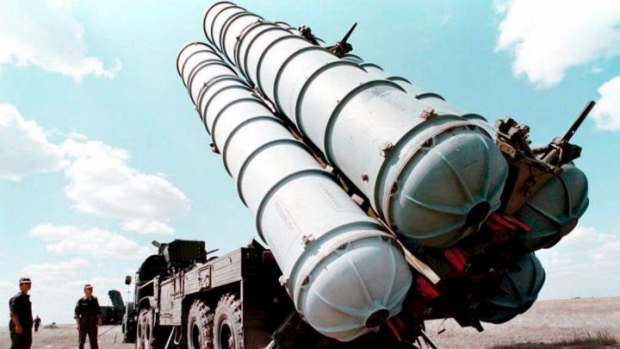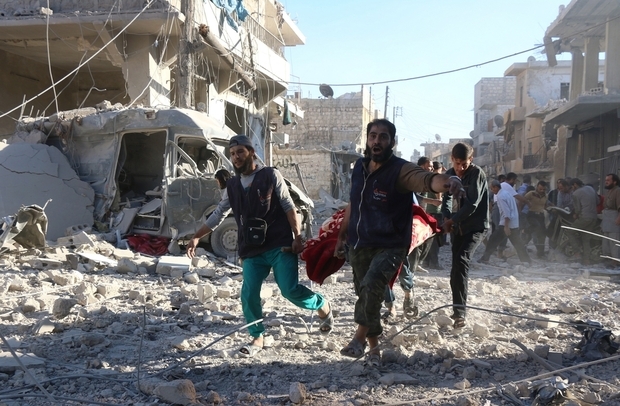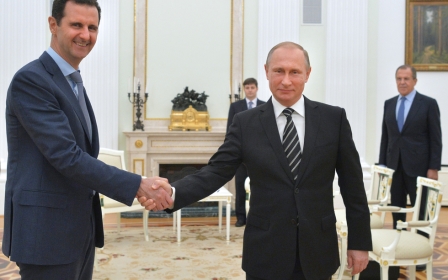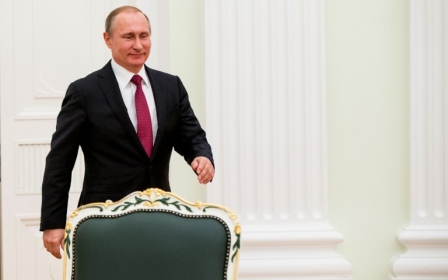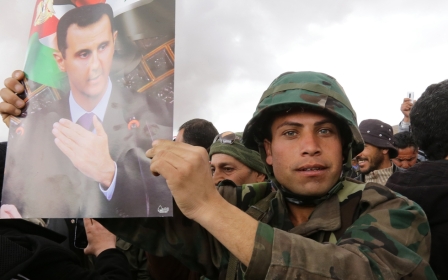Russia boasts of 'reliable' weapons used in Aleppo onslaught
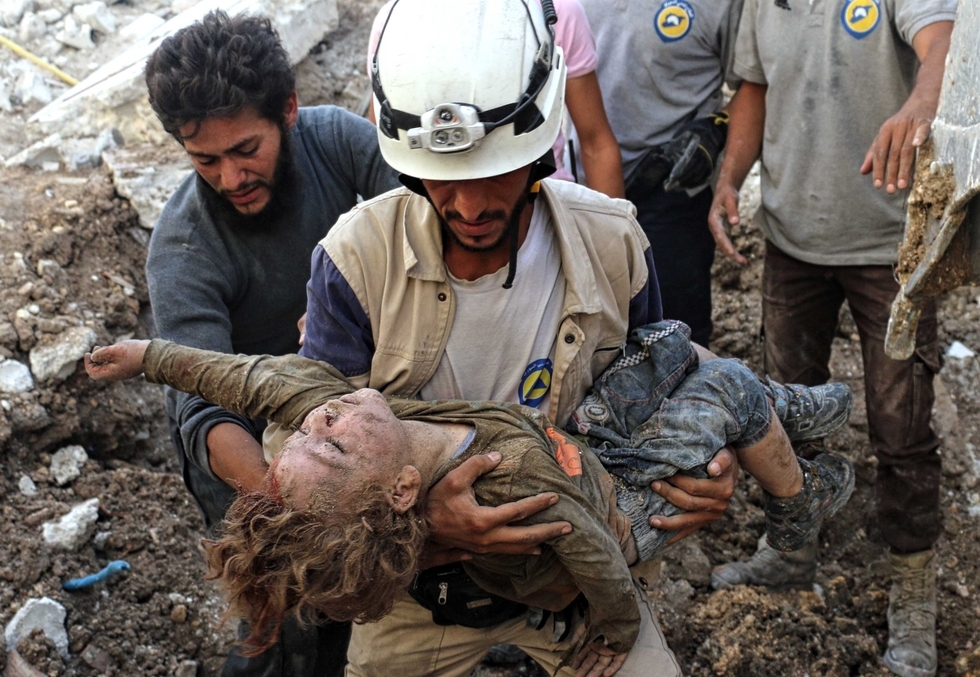
Russia’s bombing campaign in Syria had stabilised the country and showcased the “reliability” of Russian weaponry, the country's defence minister said on Thursday
Sergei Shoigu said: "In that period we have managed to stabilise the situation in the country (and) liberate a significant part of the territory from armed international terrorist groups."
"Many types of modern weapons produced in our country were tested in difficult desert conditions and generally have shown their reliability and effectiveness.”
The Syrian Observatory for Human Rights has previously said that at least 3,800 civilians have been killed by Russian strikes since it began its military intervention in support of the Syrian government in September 2015.
Russia has been accused of using thermite, vaccum bombs, white phosphorus, bunker-buster bombs and cluster munitions on civilian targets in Aleppo. The use of many of those weapons on civilians is considered a violation of international law.
Syria's five-year civil war has so far killed more than 300,000 people and forced millions to flee their homes.
Shoigu said Russia's campaign has been a testing ground for new weaponry, including long-range missiles fired from ships, submarines and warplanes.
Those include the X-101 rocket that has a range of 4,500km and was fired from bombers that took off from bases in Russia, he added.
Meanwhile Staffan de Mistura, the UN's Syria envoy, told reporters in Geneva on Thursday that the eastern rebel-held areas of Aleppo may be wiped out by the end of the year if the devastating offensive by government troops – which Moscow supports – continues.
"In [a] maximum two months, two-and-half months, the city of eastern Aleppo may be totally destroyed,” he said.
Moscow builds military might
The comments by de Mistura and Shoigu came just days after the Washington suspended ceasefire talks with Moscow.
In September a UN aid convoy was destroyed as it headed for Aleppo, killing at least 20 people. On Wednesday UN expert Lars Bromley said that the attack resulted from an airstrike, with Western governments and others blaming Moscow and Damascus – an accusation they have denied.
Instead, reports have surfaced in Russian media that the destruction of the vehicles and their crews was a "well-prepared staged or ‘fake’ attack."
But Russia has continued to increase its presence in the region. Russia said on Wednesday that two of its warships were returning to join its forces in the Mediterranean, as President Vladimir Putin called for a boost of Russia's defences to keep the nation "strong".
The two Buyan-class corvettes – the smallest class of warship - returned to the region after an earlier deployment off the coast of Syria, when they carried out missile strikes on targets in August.
The anti-missile and anti-aircraft system features a surface-to-air missile with a range of up to 150 miles. The missiles were first deployed by the Soviet Union in 1979, and are designed to protect military bases from aerial attacks.
Russia has given ferocious air support to the Syrian government for more than a year. In August its involvement deepened as it used an Iranian airbase to strike targets in Syria, the first time Tehran has allowed a foreign power to use its territory for military operations since the 1979 Islamic revolution.
US-Russia talks collapse
Much of Russia's recent military activity has been in support of the Syrian government's assault on rebels in eastern Aleppo, which has killed more than 270 people, including 53 children, since it was announced on 22 September, according to the Syrian Observatory for Human Rights. The attacks have raised allegations from many observers of war crimes.
Announcing the suspension of talks with Moscow on Monday, State Department Spokesman John Kirby accused Moscow and Damascus of "targeting of critical infrastructure such as hospitals, and preventing humanitarian aid from reaching civilians in need".
Instead, reports have surfaced in Russian media that the destruction of the vehicles and their crews was a "well-prepared staged or ‘fake’ attack."
On the same day, the M10 hospital – the largest medical centre rebel-held parts of the Aleppo - was "completely destroyed" in air strikes, said the Syrian American Medical Society (SAMS), which supports it.
But Russia's military has denied repeated accusations that it has struck civilian targets in the country during its year-long bombing campaign.
New MEE newsletter: Jerusalem Dispatch
Sign up to get the latest insights and analysis on Israel-Palestine, alongside Turkey Unpacked and other MEE newsletters
Middle East Eye delivers independent and unrivalled coverage and analysis of the Middle East, North Africa and beyond. To learn more about republishing this content and the associated fees, please fill out this form. More about MEE can be found here.


